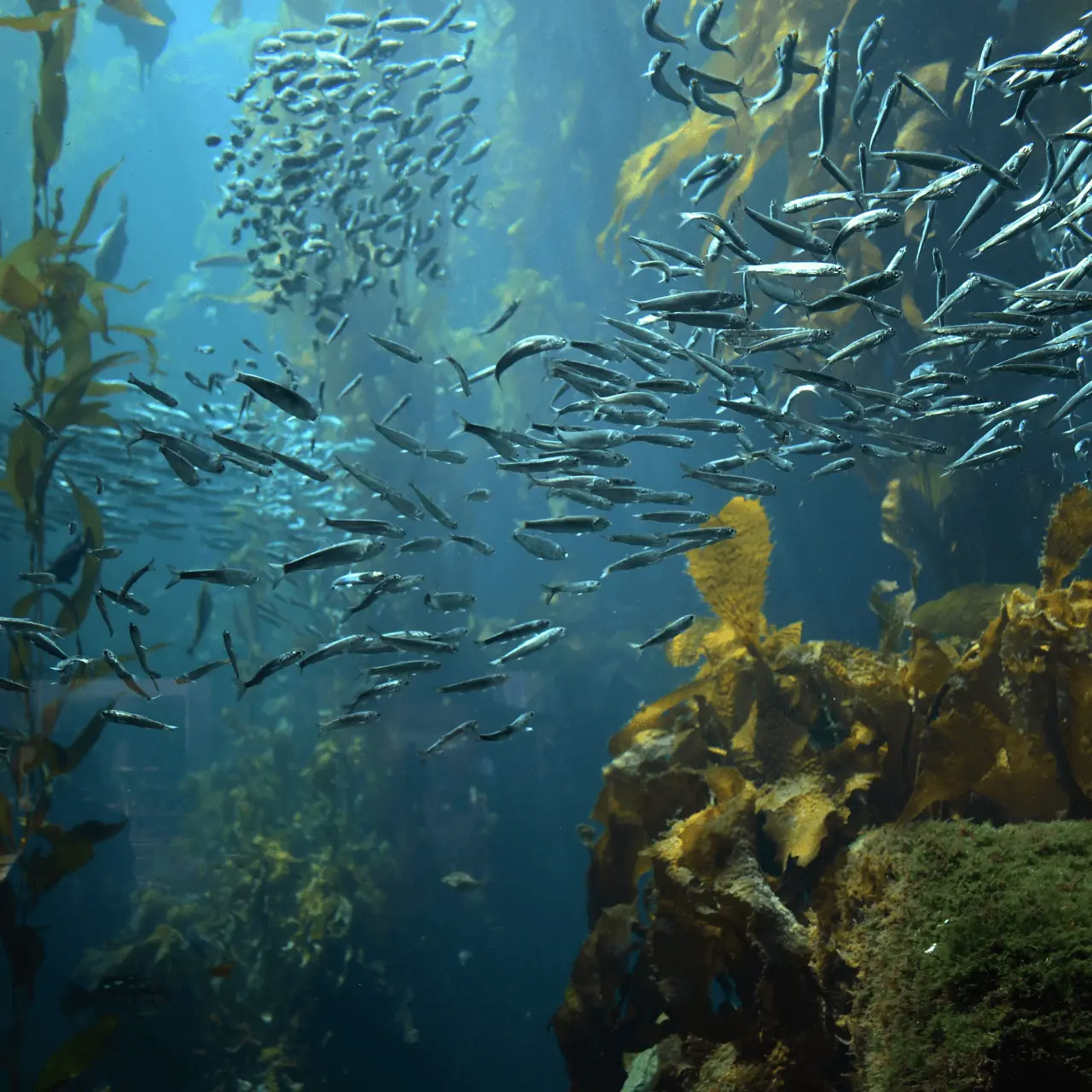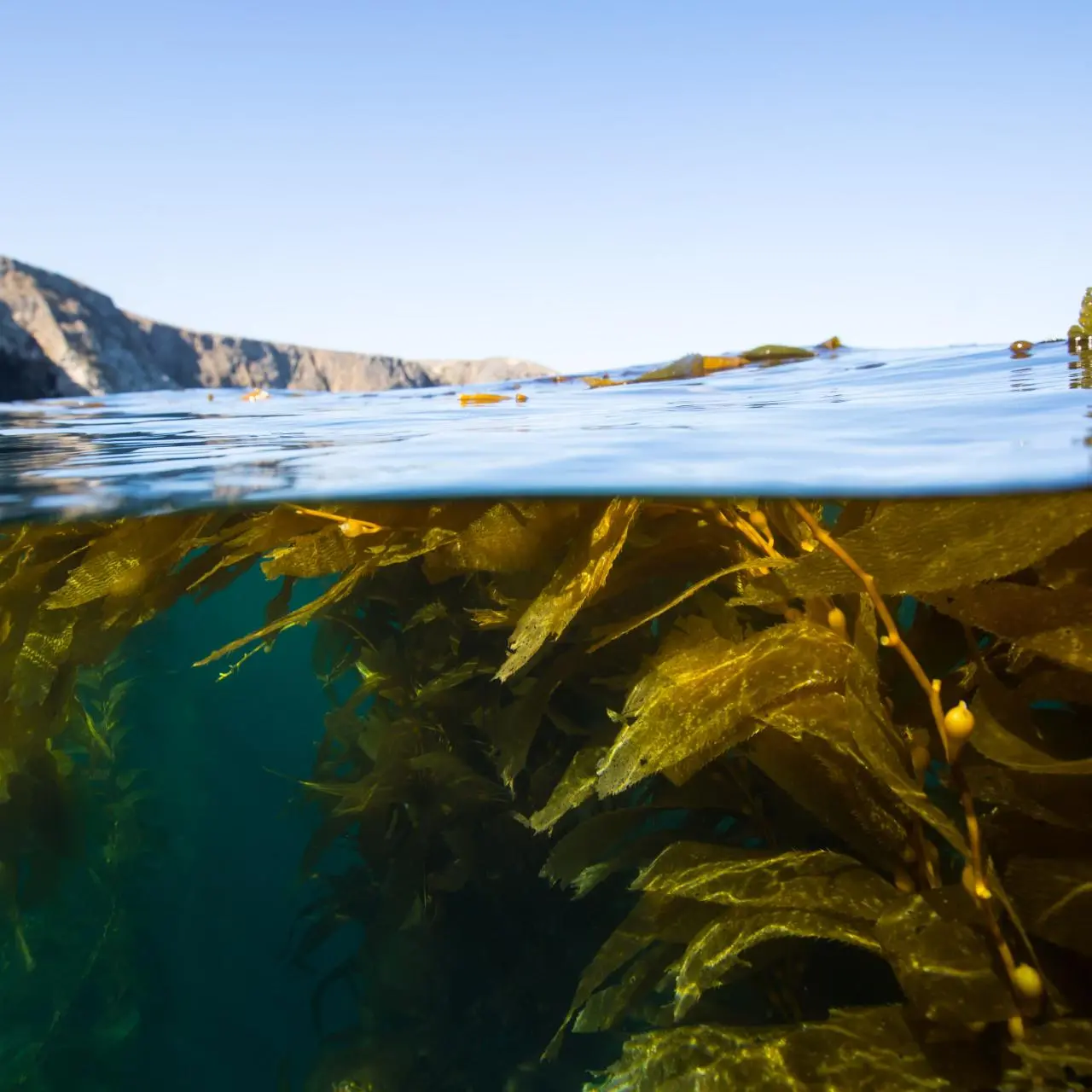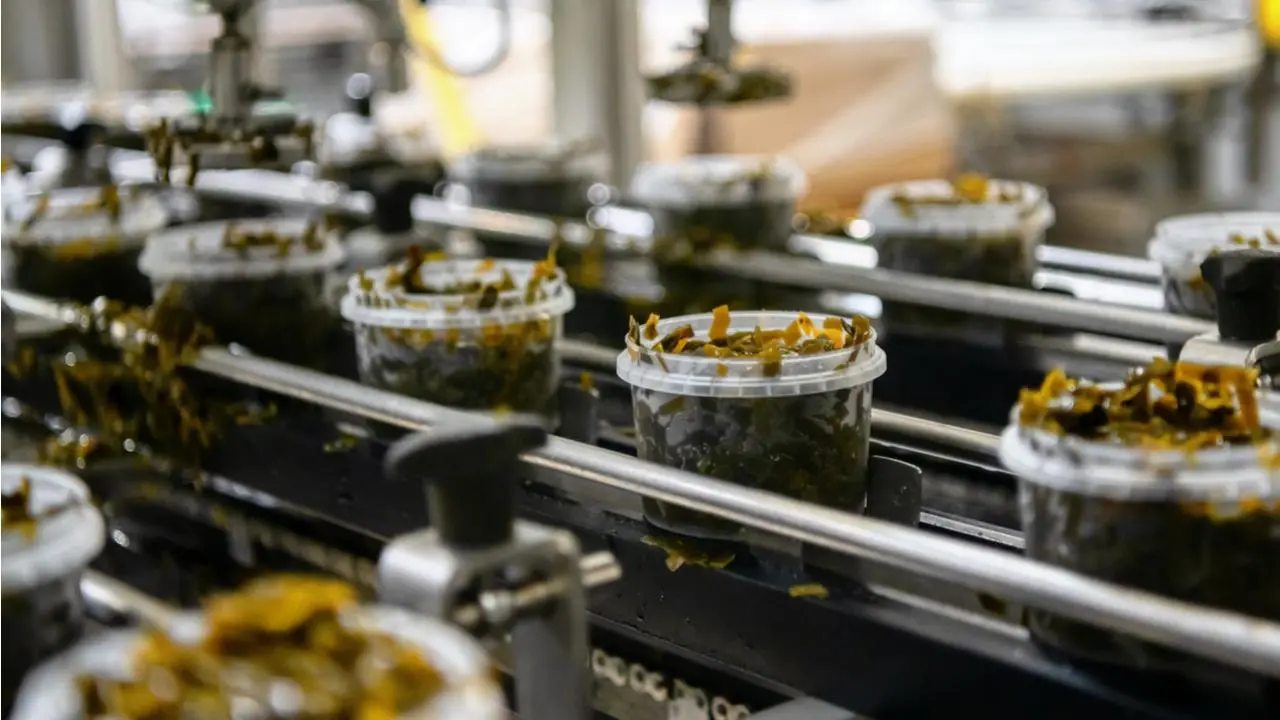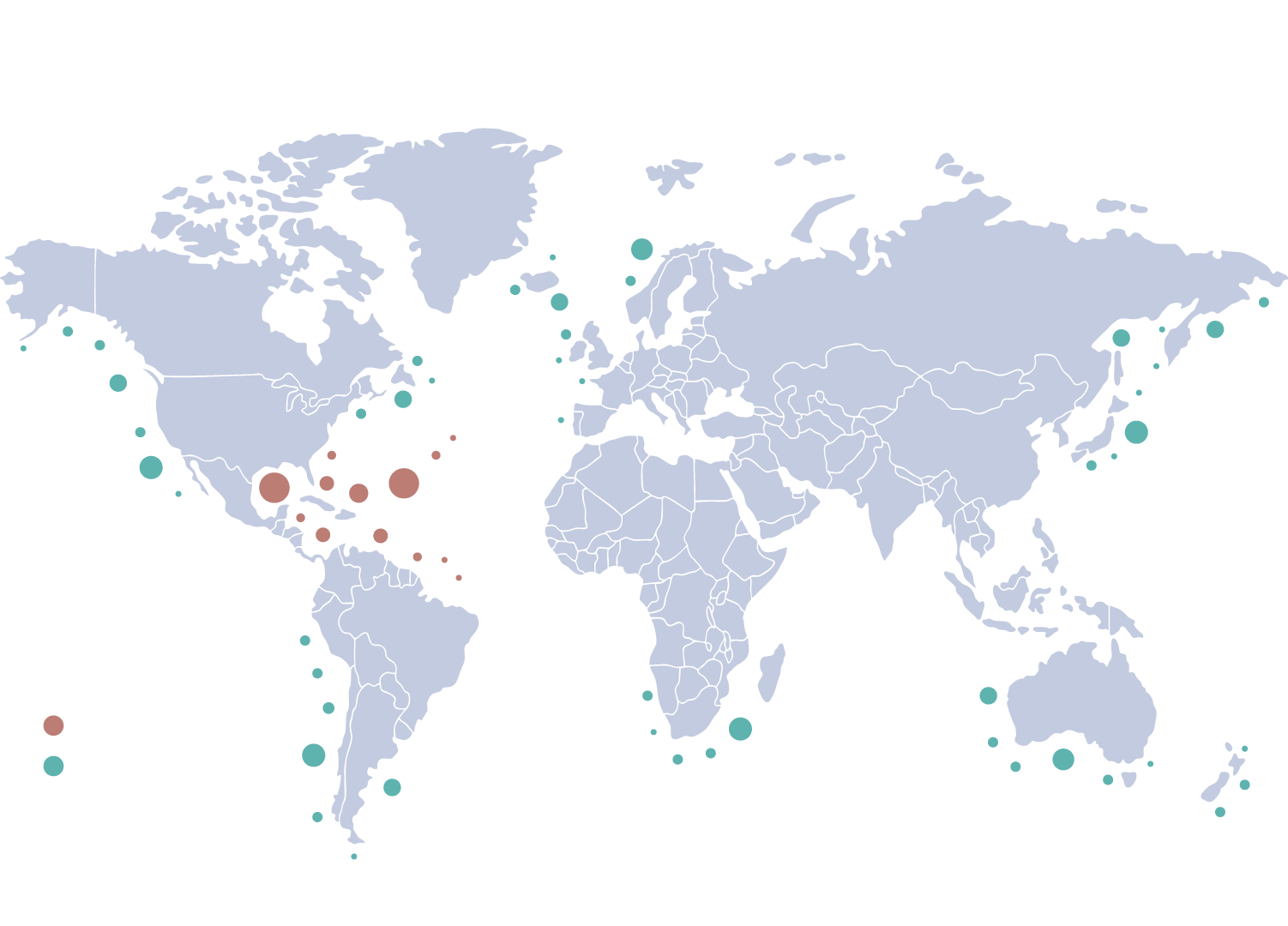Seaweed, in particular kelp, is an oasis for life. These underwater algal forests provide important habitats for many marine species including kelp crabs, starfish and salmon. Kelp forests serve as a protective nursery as their stripes and blades slow down movement of water, decreasing the chance of fish eggs to drift away to unsuitable habitats.
Seaweed
The greatest untapped resource providing unique ecosystem services
Innovations that harness the full potential of seaweed
Regarding seaweed ecosystems, we focus on several types of seaweed, all approached in a unique and innovative way.
Kelp is a type of large, brown seaweed that grows up to 30 metres or more in shallow saltwater near coastal areas. By exploring seeding and installation methodologies, we aim to strengthen the value chain of kelp that boosts biodiversity, contributes to climate mitigation by carbon sequestration and can be used in bio-based products.
Another type of seaweed we focus on is sargassum – a brown seaweed that floats in large masses on the surface of oceans and can threaten marine ecosystems and local economies. By collaborating with local partners, NGOs and technological innovators we are piloting a method to collect floating sargassum and treating it to produce biobased products and biogas.
By exploring techniques for collecting, planting and installing different types of seaweed, we aim to harvest the full potential it has to offer!
The value of seaweed

Biodiversity

Water purifier
Seaweed plays an important role in enhancing water quality. It does so by extracting excessive nitrogen and phosphorous from the water. Especially in areas that suffer from eutrophication, sometimes resulting in so called ‘dead zones’, seaweed can improve water quality. Seaweed, for instance sargassum, also captures carbon dioxide during photosynthesis, which directly reduces ocean acidification.

Biobased economy
Various types seaweeds are used in human food products and animal feed. Seaweed is typically high in fibres, proteins and vitamins and contains 10 times more minerals than land-based plants. Its nutritional characteristics and fast growth rate make seaweed an attractive resource for our sustainable plant-based diets and a biobased economy.
Sargassum blooms and kelp forests

